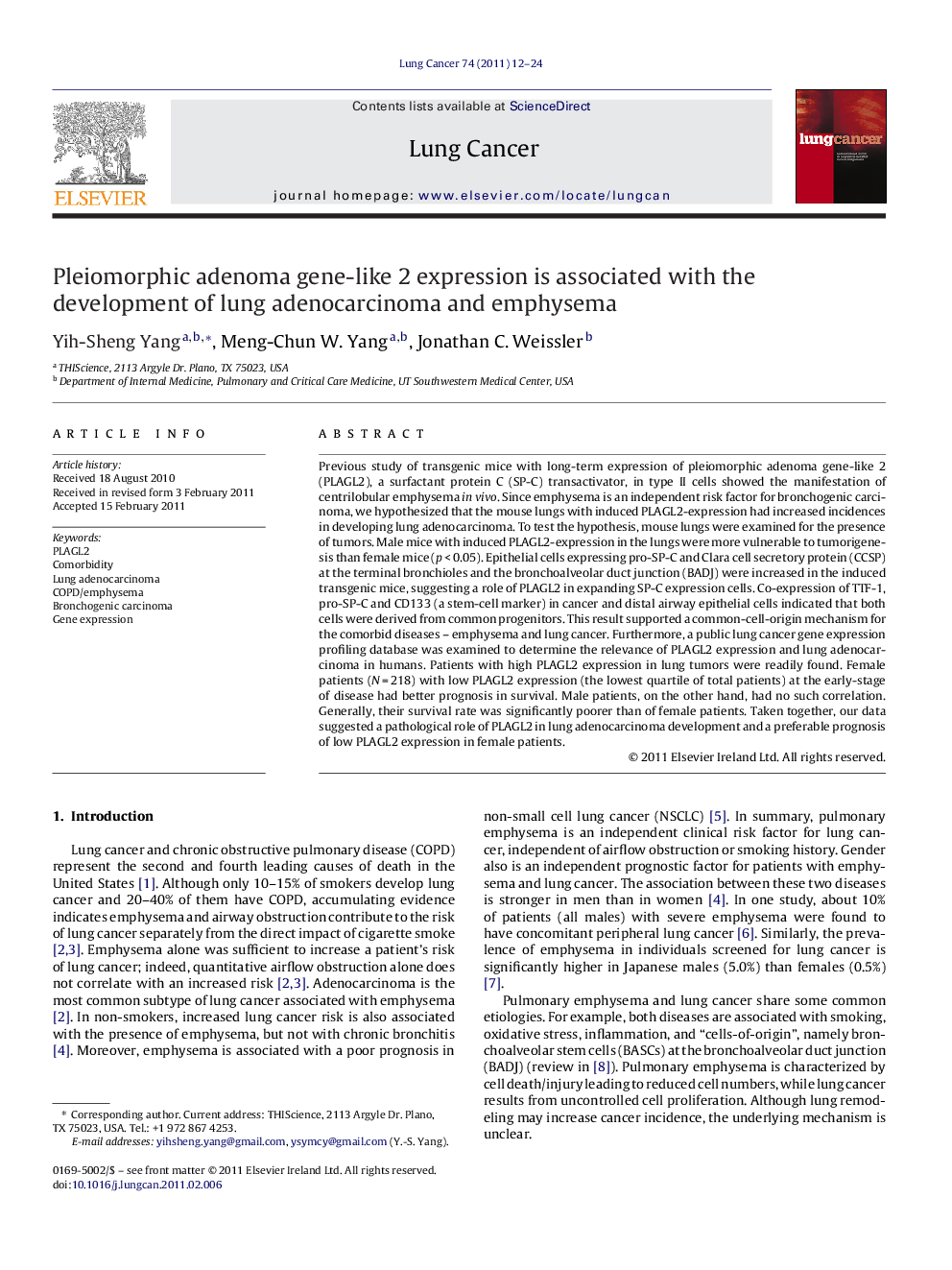| Article ID | Journal | Published Year | Pages | File Type |
|---|---|---|---|---|
| 2141866 | Lung Cancer | 2011 | 13 Pages |
Previous study of transgenic mice with long-term expression of pleiomorphic adenoma gene-like 2 (PLAGL2), a surfactant protein C (SP-C) transactivator, in type II cells showed the manifestation of centrilobular emphysema in vivo. Since emphysema is an independent risk factor for bronchogenic carcinoma, we hypothesized that the mouse lungs with induced PLAGL2-expression had increased incidences in developing lung adenocarcinoma. To test the hypothesis, mouse lungs were examined for the presence of tumors. Male mice with induced PLAGL2-expression in the lungs were more vulnerable to tumorigenesis than female mice (p < 0.05). Epithelial cells expressing pro-SP-C and Clara cell secretory protein (CCSP) at the terminal bronchioles and the bronchoalveolar duct junction (BADJ) were increased in the induced transgenic mice, suggesting a role of PLAGL2 in expanding SP-C expression cells. Co-expression of TTF-1, pro-SP-C and CD133 (a stem-cell marker) in cancer and distal airway epithelial cells indicated that both cells were derived from common progenitors. This result supported a common-cell-origin mechanism for the comorbid diseases – emphysema and lung cancer. Furthermore, a public lung cancer gene expression profiling database was examined to determine the relevance of PLAGL2 expression and lung adenocarcinoma in humans. Patients with high PLAGL2 expression in lung tumors were readily found. Female patients (N = 218) with low PLAGL2 expression (the lowest quartile of total patients) at the early-stage of disease had better prognosis in survival. Male patients, on the other hand, had no such correlation. Generally, their survival rate was significantly poorer than of female patients. Taken together, our data suggested a pathological role of PLAGL2 in lung adenocarcinoma development and a preferable prognosis of low PLAGL2 expression in female patients.
